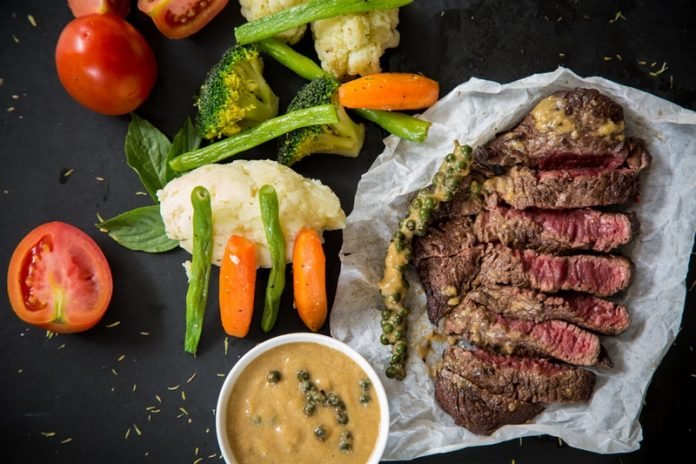
In a new study, researchers found people who follow the paleo diet have twice the amount of a key blood biomarker linked closely to heart disease.
The biomarker is called trimethylamine-n-oxide (TMAO), an organic compound produced in the gut. High levels of TMAO are linked to an increased risk of heart disease.
The research was conducted by a team from Edith Cowan University (ECU).
The controversial Paleo (or ‘caveman’) diet advocates eating meat, vegetables, nuts, and limited fruit, and excludes grains, legumes, dairy, salt, refined sugar and processed oils.
Since the diet has become more popular, it is important to understand the impact it could have on overall health.
In the study, the team examined 44 people on the Paleo diet and 47 following a traditional Australian diet.
They measured the biomarker amount in the participants’ blood.
They found that when it comes to the production of TMAO in the gut, the Paleo diet could be having an adverse impact in terms of heart health.
They also found healthy gut bacteria were lower in the Paleo diet group. This was linked to the reduced carb intake, which may contribute to other chronic diseases over the long term.
The researchers also found higher concentrations of the bacteria that produce TMAO in the Paleo group.
The researchers explain that the reason TMAO was so high in people on the Paleo diet appeared to be the lack of whole grains in their diet.
The lack of whole grains was linked to TMAO levels, which may provide a link between the reduced risks of heart disease we see in people who ate whole grains a lot.
The team says the Paleo diet excludes all grains. But whole grains are a fantastic source of resistant starch and many other fibers that are vital to the health of the gut microbiome.
Because TMAO is produced in the gut, a lack of whole grains might change the gut bacteria enough to enable higher production of this compound.
In addition, the Paleo diet includes greater servings per day of red meat, which provides the precursor compounds to produce TMAO.
People on a Paleo diet also eat twice the recommended level of saturated fats, which is bad for health.
This is the world’s first major study examining the impact of the diet on gut bacteria.
The lead author of the study is Dr. Angela Genoni.
The study is published in the European Journal of Nutrition.
Copyright © 2019 Knowridge Science Report. All rights reserved.



